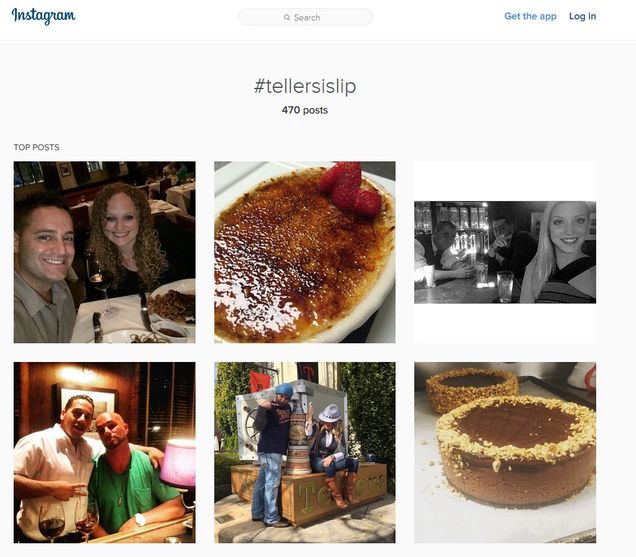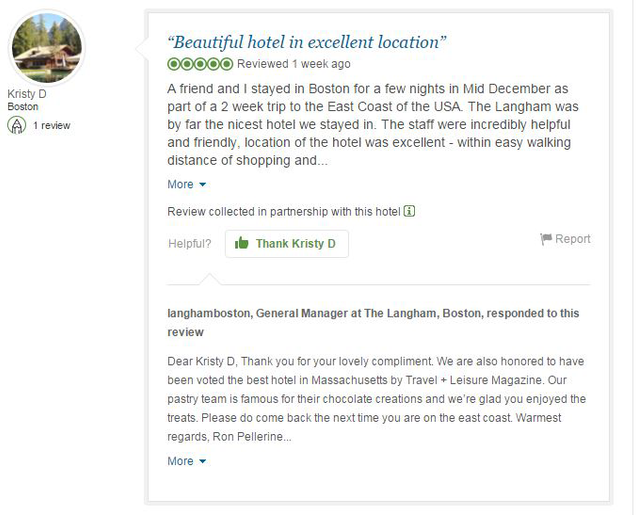Hotel E-Commerce: Navigating the Complex Hospitality Digital Marketing Landscape

By Leora Halpern Lanz
It’s challenging to be a hotel market today, let alone one who needs to understand and masterfully manage digital marketing for one or more properties. How do the hotel marketer and revenue manager ride the endless wave of online travel agency (OTA) distribution, commission structures, and rate parity? How much should a hotel budget for key word searches, Google Ad Sense, and Facebook ads? When do we determine to “turn on” or “shut off” the search engine marketing campaign? Who is the voice of our product and services on social media? How effectively is that voice engaging with guests, ultimately resulting in effective customer relationship management (CRM) and brand advocacy? Is the website sufficiently optimized to produce an actual cyber network of digital visibility, online presence, and distribution channels? How much does it cost to acquire a new guest and how do we encourage this new guest to book directly through a brand’s website?
As Sean McCracken, Hotel News Now editor, wrote in his December 22, 2015 piece, Digital Marketers Deal With Shifting Landscape, digital marketers in the hotel industry are working to drive bookings among a changing climate for OTA’s, guest expectations, and advertising. Attempting to demystify the confusing arena that is digital marketing for hospitality is challenging. Is it productive to learn by trial and error?
Here are a few pertinent strategies to consider when trying to find a place in the digital marketing landscape:
A Hotel Website Connects to Cyber Network: Link and Hyperlink
Websites are dynamic vehicles. In addition to being an attractive and interactive dashboard, a site should be continuously updated and optimized for searchability to be truly functional. Building a website with no intention of continuous enhancement is poor planning; building it properly and keeping the content fresh will support a strong online presence.
1. Consider reducing text and adding more visuals, images, videos and opportunities for viewers to comment or ask questions.
2. Consider how someone would search to potentially find you when writing site copy.
3. Create strategic links from the website to a brand’s social channels and business partner’s.
“It’s not enough to have a beautifully designed website anymore,” says Sara O’Brien, Associate Director of Marketing at HeBS Digital, “The technology behind it is what will allow you to generate more bookings and engagement from visitors. Responsive / Adaptive design for the mobile, tablet, laptop and desktop screens is a must, along with the ability to personalize content based on the visitor, entice visitors to return, complete the booking, and more. This type of technology is affordable and accessible, even for independent properties without large budgets.”

Responsive websites function properly on a variety of devices – tablet, mobile, desktop, laptop – and they are more critical than ever. Even four years ago, author Sam Laird shared that more than 65% of people who book a hotel room within 24 hours of checking in do so from a mobile device (Mashable.com). According to Expedia, more than 15% of travelers who book a flight 24 hours or less in advance also do so via mobile device. Hotels with ratings between two and three stars are most commonly reserved via mobile devices, indicating that they are likely the best (or most available) last-minute lodging option. Smart phones have given new power to the harried, last-minute traveler and the companies with the applications that are easy to access and instinctive to use are most likely to attract these customers.
Search Engine Marketing and Search Engine Optimization Assessment: Understanding Key Words, Google, and Facebook Marketing
Search engine marketing (SEM), the process of maximizing the number of visitors to a particular website by ensuring that the site appears high on the list of results returned by a search engine, is imperative to increase web traffic and social media news. Successful navigation of key word auctions can best be achieved with the aid of digital agencies that understand the nuances of purchasing search terms in return for higher search engine rankings. Another less expensive strategy that can be extremely effective is the use of Long Tail Keywords, specific phrases that touch upon a variety of customer needs. A phrase such as, “midtown Manhattan hotel perfect for social event and with ample parking” may show precisely the right search results to increase a specific customer’s likelihood of purchase. Branded terms that directly related to a particular product or service are also effective search engine marketing tools. Such terms, for example, “Inn at Fox Hollow, Long Island, NY” must be purchased requiring a larger marketing budget.
Paid Advertising
It is important to budget for paid ads because relying on organic posts is just not enough in today’s world of information overload and marketing clutter. Marketers need to understand the unique advertising sales method for each platform. For example, Twitter ad sales are often based on engagement rates as opposed to Facebook where one can pay per impression. It is extremely beneficial to work with experts who can optimize user data to target specific content to the right audience, and determine which content would perform best with paid support.
Both Facebook and Twitter advertising allow for targeting users based on demographic and psychographic data. Both platforms also offer Promoted Posts as a way of boosting a post to new or existing fans. These posts may consist of imagery, stories, or testimonials. Facebook’s Carousel ads can appeal to multiple markets as a rotating gallery is embedded into each ad. Additionally, Facebook’s Remarketing Ad option uses “cookie” tracking to identify audiences that may have already visited the site, thus have shown interest in the brand.

Geo-Targeting an Ad
Geo-targeting advertising is particularly useful for local or neighborhood food and beverage establishments as it allows a business to reach existing and prospective customers by radius, geographic zip code, or specific location. It is always important to communicate and engage with your “internal” audience and local community as they can be your brand affiliates, spreading the word to their networks. Geo-targeting can be added to most social and digital ads.
Twitter and Facebook provide detailed advertising analytics, but Google Analytics is a useful tool to track website activity in conjunction with an ad campaign. Social media ads paired with the purchase of Google’s Keywords, Ad Words, and Pay Per Click (PPC) ads provide an opportunity to boost a website to the top of relevant search rankings.
No matter what type of paid advertising channel is used, marketers must set measurement goals for paid posts. Doing so gives them the ability to monitor performance at different stages of the campaign, and decide if the ad should be adjusted, taken down, or has “done it all”.
Social Media Presence: Regram and Hashtag
Hashtag (noun \ hash·tag \ˈhash-ˌtag): a word or phrase preceded by the symbol # that classifies or categorizes the accompanying text (such as a tweet)
Effective branding and marketing in the 21st century demands social presence and two-way conversation. Specifically, social media marketing requires the combination of manpower, time, and expertise in proper social media etiquette while utilizing branding, engagement, and relationship management (CRM) tools. Successful social presence is achieved by using existing data to create specific, targeted content based on the intended audience and the purpose of a specific social channel.
Social media marketing can be a cost-effective and efficient method to interact with existing and prospective customers. A hashtag symbol that precedes a word or phrase classifies the text to be easily searched on social media (such as with Twitter). Properly using hashtags helps a brand start a conversation with consumers and identifies who is already talking about them. Brands should regularly search for and use hashtags with a brand-name and category keywords. For example a local Boston restaurant could use its name, #TellersIslip and #LongIslandRestaurants, in Instagram posts. Instagram users often post photos of their meals followed by captions reviewing their experience at the restaurant,, and include a hashtag with the brand name , and relatable keywords (e.g.#BestMealEver!). These searchable posts come to serve as reviews for a brand.

In addition to Instagram, visually-focused tools like Pinterest and YouTube can powerfully convey a message and brand through strong imagery. Pinterest uses virtual bulletin boards for brands and users to showcase and categorize images of everything from places to products. Hospitality brands can use these platforms to highlight amenities that are best shared visually. In determining which platforms to use and how to use them, it is vital to research the primary audience that uses each platform. For example, Facebook is most used by audiences ages 29-40; Twitter is used by those 18-29 years old. With the requisite demographics in mind, brands can be more effective in selecting proper photography, imagery, and copy to capture the attention of the targeted markets.
Managing and Monitoring Social Media
There are dozens of programs available to help manage and monitor social accounts such as Hootsuite and Buffer. These programs can organize each social account (Facebook, Twitter, etc.) and stream information based on certain criteria. For example, in Hootsuite, a stream can be set-up just to show Tweets in which a particular brand is mentioned. Another could be established to show only Instagram posts that use a specific campaign hashtag, such as Marriott’s #TravelBrilliantly. Most notably, the platform allows for posts to be pre-scheduled, creating continuity of messaging on various social sites. After content is posted, analysis and data features enable marketers to assess which posts are most effective or need to be changed.
LMA Communications founder Larry Mogelonsky contends that marketing will eventually be “limited to infographics, photos and videos.” (Hotelmags.com, 12/2015). Every action will be built around mobile devices. There will be scant text and descriptions on websites. Infographics will be used to explain and provide most technical information. This prediction into the future of content reminds marketers to keep content visual, meaningful, and tight.
Online Review Sites
Consumers rely heavily on the reviews from others in their online communities. Consequently, brand-presence on a user generated content (UGC) site like TripAdvisor and Yelp is extremely important. In as such asAs customers who post reviews have the potential to be brand advocates, there is an ever-growing need to learn how to properly engage with online reviews and comments. Replying to positive reviews and addressing complaints or critical comments transmits a tone of trust to a UGC community. According to industry expert and Rouse Media president Glenn Haussman, the impact of a customer rating three stars versus four stars on Yelp or TripAdvisor can be a significant impact to a restaurant’s bottom line.
Some hotel companies hire firms to monitor online brand reputation and respond to customer inquiries, guest comments and create guest surveys. Providing detailed analytics, vendors such as ReviewPro can help hoteliers prioritize operations and service enhancements to deliver more memorable guest experiences. These companies can create full assessments of guest feedback, enabling organizations to improve rankings on TripAdvisor and OTA’s with the goal of boosting revenues and differentiating from their competitors.

E-Mail Marketing
E-mail continues to provide a successful tactic to reach new customers and reinforce relationships with current customers. Travel intelligence platforms, such as Adara, have access to loyalty program data, historical purchase patterns and other significant information that can aid in building strong customer profiles. With guest data, special offers through targeted emails can be personalized to reach explicit audiences – not due to specific purchases, but rather based on buying habits made over time. When customers receive emails that are designed especially for them, and in ways in which they interact with the hotel or restaurant, it can enhance the likelihood of repeat business. Effective email campaigns, with the help of firms like Revinate, can boost the rate at which customers open targeted emails, click-though to a company’s on-line offer and hopefully convert (book) the business.
So Much More to Learn
There are many lessons to learn from this tip of the iceberg look at digital marketing. The following are immediate take-aways:
1. Technology changes so rapidly, it is important to continually learn.
2. It’s important to work collaboratively. Hospitality marketers must surround themselves with vendors and partners who are equally pushing for mutual success
3. Remain calm and confident, willing to experiment and modify when necessary. When decisions or tactics don’t seem effective or produce results, it is perfectly acceptable to change paths. Just give new channels some time to work.
4. The choices and options for marketing are overwhelming – do not attempt to use every channel and spread yourself and the brand too thin. Select a few appropriate marketing or social media channels. Do not attempt to use every channel because that will spread human resources and financial resources, as well as the brand itself.
5. Reach out for professional expertise along the way. Ask colleagues to share best practices for a robust exchange of ideas and solutions.
6. Effective marketing alone is not enough. Product quality, service, experience and the investment of manpower, time, and/or capital will always be necessary to maintain quality, guest satisfaction, and long term success.

28 comments
Great article!
Thank you for the kind comment and I hope you find this information useful.
First paragraph almost gave me an anxiety attack but the rest of the article was very refreshing.
Hi Daniel. It actually gave me an anxiety attack. I agree. It’s overwhelming. That’s why I tried to organize this in such a way to be helpful. If any glimmer of this can be useful, then that’s great.
Nice and informative post. It’s a good practice to follow these digital marketing strategies.
Great Blog … thanks for sharing.
I have learnt various good stuff right here, and I’m sure everyone will get advantage of it.
I have learnt various good stuff right here, and I’m sure everyone will get advantage of it.
you are great ı wait you
Hello Dear, Nice blog . I’m very happy to read your blog .
That is very useful post . thank’s
I agree with your points about a hotel website. The website should provide information through visuals than text. the website copy should be SEO-friendly to help users easily find you. Having a strong social media presence too makes your business easily findable and increases its credibility.
– Tessa Spencer
Visit site
I think every business has a website these days because e-commerce is so important. In order to provide a more convenient service to customers, I buy various extensions by Amasty. I don’t have time to keep track of all the extensions, so the extended subscription https://amasty.com/magento-support-subscription-service.html is an ideal option for myself, so that specialists check the correct work and updates.
If you want to expand your business, then you definitely cannot do without experienced marketers. In addition, it’s very important that the company has really cool sales people. I think it’s quite easy to raise the level of your specialists now, because there are various courses, trainings, for example, Sales training. This is really something that a business owner needs to pay attention to.
Hello! I was just looking for similar information recently, because I also needed to know how to block someone on linkedin without visiting their profile. Sometimes it really becomes necessary if someone is behaving too intrusive and persistent, and the only solution is to block the user, although I don’ like it
Nowadays, I think that every business has a website because e-commerce is so important. to learn the most recent information on e-commerce sites in order to provide customers with more convenient services. Custom ecommerce website
Thanks for sharing Information. If anyone looking for a partner in the United States, then Join The
I really enjoyed your blog post on hotel e-commerce. Salesforce Health Cloud Services is a suite of cloud-based applications that helps health care organizations improve patient care and outcomes. It provides a single platform for managing patient data, streamlining workflows, and automating processes.
I’m glad to hear that you enjoyed the blog post on hotel e-commerce. Hotel booking software helps to automate reservation processes, room inventory, rates, and managing guest details. This digital solution enhances operational efficiency, ensures a seamless booking experience and optimal occupancy management for hotels, ultimately enhancing customer service and revenue.
Awesome information in this blog, if you want to other related information then content with us. We Provide all kinds of Shopware development and Shopware customization services including custom Web & Mobile development.
Awesome information in this blog, if you want to other related information then contact with us. We Provide all kinds of Shopware development and Shopware customization services including custom Web & Mobile development.
Tổng Kho MMO – Đơn vị uy tín cung cấp các sản phẩm số giá rẻ, chất lượng: Chat GPT, Canva Pro, Keywordtool.io, Semrush, Freepik.
Your posted blog is really informative. It is very impressive. If you are looking for Magento Development Services, you can approach us. We provide Web Development & Software Development services for all business categories.
Techno Profiles specializes in web design and development , digital marketing, and mobile app development. Contact us to bring your online presence to the next level.
When diving into the financial technology sector, I stumbled upon these helpful insights on why it’s crucial to have a strong team behind your dedicated software.
سیلی دی ، تولید کننده انواع سیم و کابل نسوز سیلیکونی و اعلام حریق
کابل نسوز
سیلی دی ، تولید کننده انواع سیم و کابل نسوز سیلیکونی و اعلام حریق
کابل نسوز سیلیکونی
Great article.
If you in search for best theme for hotel.